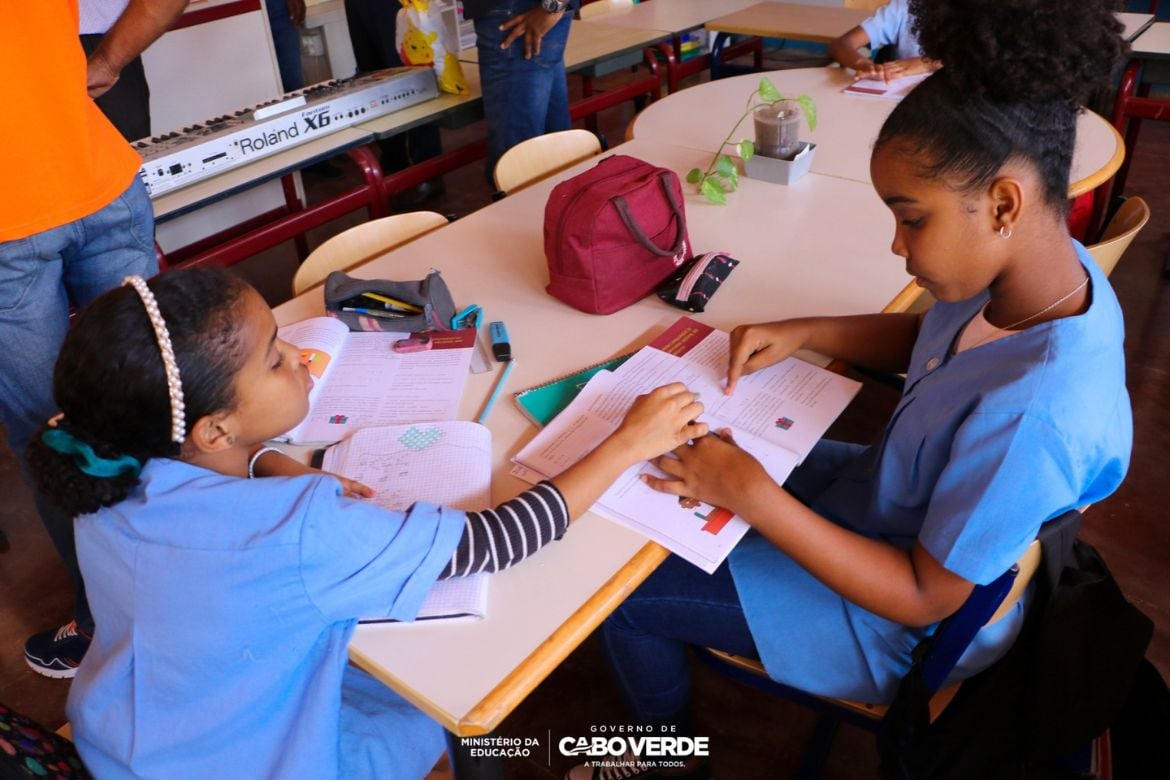
Credit: GPE
Cabo Verde leads the way for children with disabilities
With the support of civil society and evidence-based advocacy, Cabo Verde is proving that it is possible to make a valuable change for many children with disabilities.
In Cabo Verde, the government is committed to achieving inclusion through the implementation of special measures that enable access, participation and progress for children and young people with special educational needs throughout their school career. Children with disabilities learn in mainstream education schools.
Although Cabo Verde has been recognized for its proficiency in achieving Sustainable Development Goals, with notable progress in ensuring high school enrollment rates, persistent gaps remain in eliminating educational inequities, particularly for lower-income households.
While there are no recent disability-disaggregated data for Cabo Verde, sources indicate that in 2010, an estimated 6% of the population was living with some form of disability, with 60% of these being women.
The data also suggests that people with disabilities are more likely to live in poverty, and a higher proportion of women and girls (54%) with disabilities are illiterate. In addition to being out of date, these figures are also likely to be an underestimate as WHO considers that, on average, 16% of the world’s population lives with some form of disability.
Civil society’s long-term approach for change in education
In 2016, the national education coalition—Rede Nacional de Campanha da Educação para Todos, Cabo Verde (RNCEPT-CV)—submitted a proposal to the government advocating for the establishment of a legal framework for special education in pre-school, primary and secondary education institutions.
From 2020 to 2024, the coalition worked with the municipalities of Santiago and Saint Vincent to advocate for funding for inclusive education.
In 2021, a new Minister of Education was appointed, and RNCEPT-CV resumed its advocacy efforts towards the adoption of a national law led by the coalition’s President, Dr. Marciano Monteiro, a visually impaired person who heads the Union of the Blind of Cabo Verde.
Finally, in February 2024, Law no. 9/2024 was promulgated establishing the principles and rules that guarantee the inclusion of children and young people with special educational needs. The law included measures to be implemented in the educational process and specific resources to be mobilized to meet the educational needs of each student.
This law was a major milestone as it guarantees fee-free education for learners with disabilities from basic education through tertiary and widens the use of resource rooms to help accommodate children with special education needs to all municipalities instead of a few in the city councils.
“We consider that the publication of the decree is a win for the network because when something like that is published, it means that we are being listened to (…) We can see that schools are being remodelled,” says Abraão Borges, Coordinator, Rede Nacional da Campanha de Educação para Todos – Cabo Verde.
Civil society continues its advocacy efforts
Despite the progress to date, crucial issues relating to the quality of education such as accessibility, the need for adequately trained teachers and adapted teaching and learning materials will continue to require ongoing advocacy.
Abraão Borges is especially concerned for the deaf and blind children who need extra support to learn at the same level as other students. “There are still not enough teachers to work with children with special educational needs, especially in some of the more remote locations. Of course, there’s a lot of provision in the cities, but all schools should have teachers trained to work with deaf and blind children. We are working to ensure complete coverage and all schools across the country must be inclusive!”
RNCEPT-CV will continue to advocate for measures ensuring the right to learn on the same level for all. These measures will naturally cost money. The coalition has been placing significant focus on the issue of education financing through the convening of an annual forum with all education, public and private finance stakeholders to serve as a space for dialogue and reflection on strategies to enhance efficiency and transparency in the utilization of education resources to better promote equity in education.
As part of its Education Out Loud supported project, the coalition will continue its advocacy work for inclusive, equitable and quality education by collaborating with allies, holding regular meetings with the Ministry of Education, parliamentary committees and local councils, and by providing oversight of the implementation of the education sector plan and budget.
Ongoing engagement with the media and performing artists will also help keep the issue in the public eye as there is still much to be done.
_________
GPE, through Education Out Loud and previously the Civil Society Education Fund, has supported civil society actions in Cabo Verde since 2011.
We thank Abraão António de Espírito Santo Tavares Borges, Coordinator of the Rede Nacional de Campanha da Educação para Todos, Cabo Verde, and Dr. Marciano Monteiro, President of the Rede Nacional de Campanha da Educação para Todos, Cabo Verde, for their invaluable contribution to this article.
